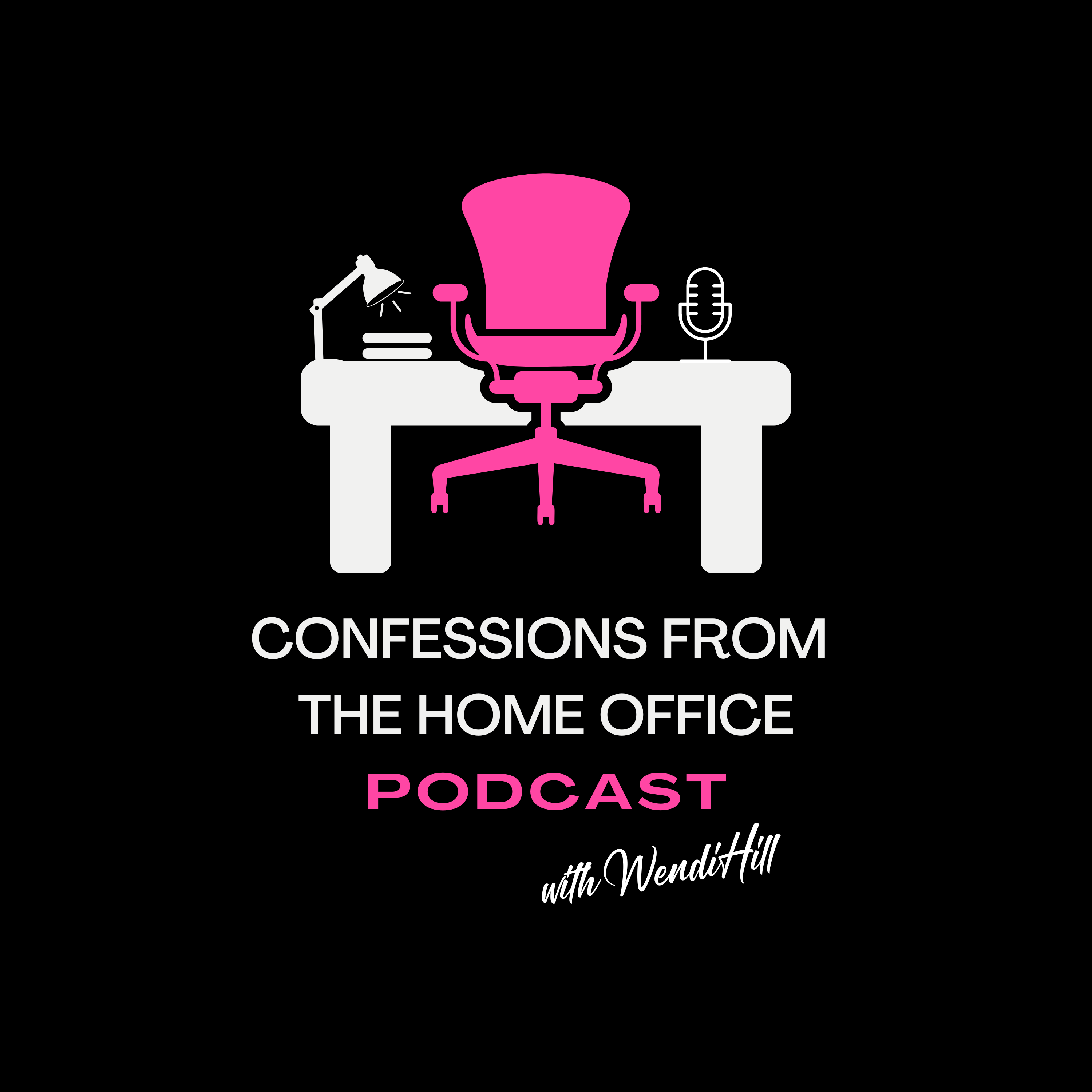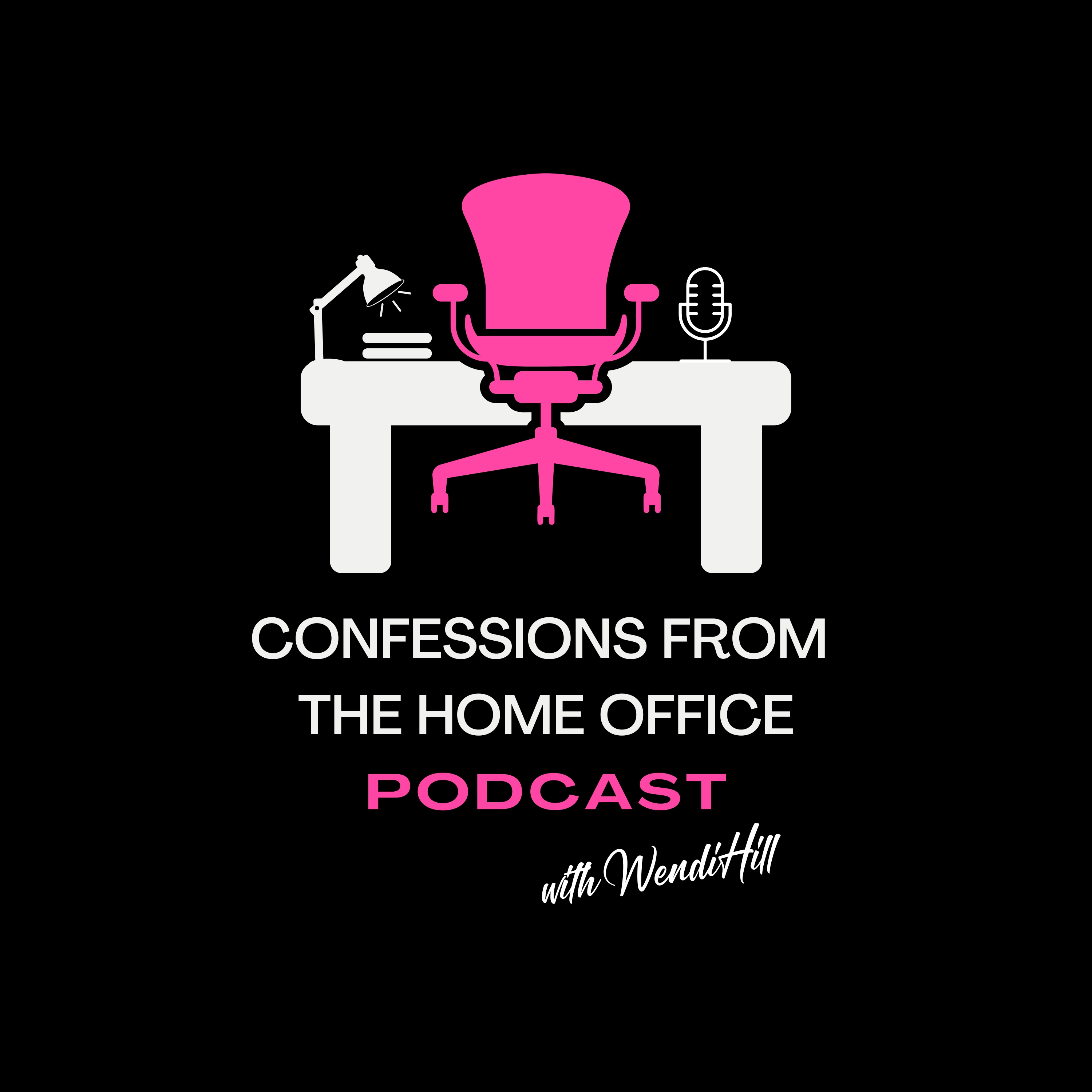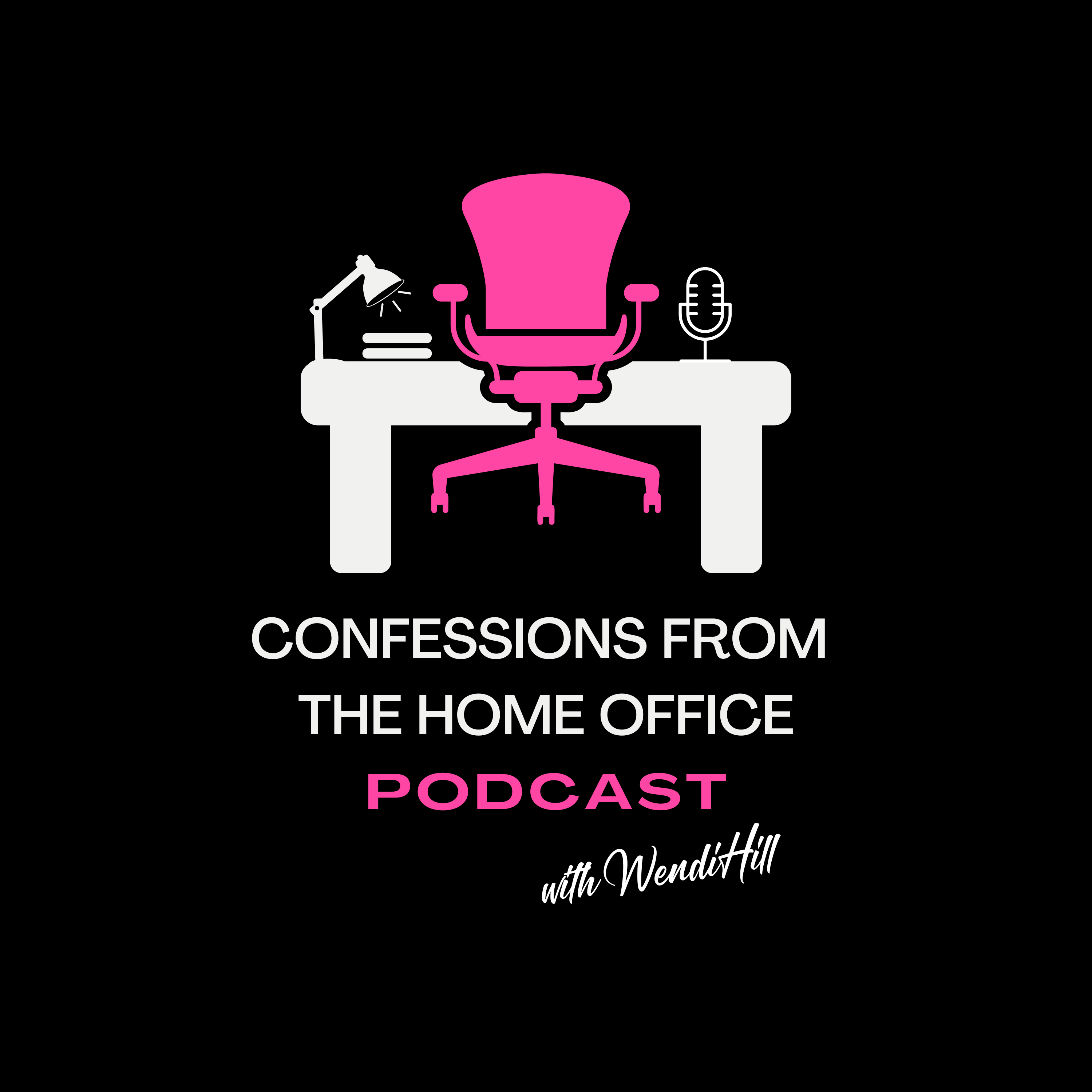Episode Transcript
[00:00:06] Hi there and welcome back to Confessions from the Home Office. I'm Wendy Hill and what's today's confession?
[00:00:13] Well, I've been running my business with what I'd like to call the brain based filing system. Now I keep every email that comes in and everybody laughs at me about. My inbox is huge and I have all these folders with things stuffed in it. But if you need something, I can find it, I can search for it and give it to you, even if it was in 2015.
[00:00:32] And I feel good about that.
[00:00:34] But I know how everything works in the business, where it lives and what needs to happen next. But the business just can't be me. For years that worked. I had one study contractor who knows the drill and had a handful of creative contractors for a specific product projects. Everyone did their part and I kept most of the processes stored safely in my head because I think my brain works really well. But lately, business has been growing very quickly and that's where this little system starts to break down.
[00:01:07] So I have a great business coach named Rhonda Melogee and she gave me a challenge that by December 10th, I need to have everything in my business documented.
[00:01:17] And a couple of weeks ago I actually started this and I worked on a Google sheet all weekend long. And I thought I had all the processes listed, not in detail, but I knew by client, by with billing and with new business and everything with technology what I had. But then when I started thinking about what goes into each one of those, started getting a little overwhelmed. So of course I stopped.
[00:01:44] So. So I thought, really I have good people who know how things run. But here's the reality. We've been growing, the pace is going very quickly and I'm going to have to bring some other people on the end of this year, early next year. And no matter how much I trust my current team and hopefully have good hires, no one can read my mind, even though I wish that they could.
[00:02:06] So if I want to keep things consistent as we grow, every client post, every campaign, every deliverable needs to be mapped out so that anyone stepping in knows exactly how it's done. And as I've told you in some previous episodes, my parents are starting to need a little more help. So sometimes I don't know from one week to the next if I'm going to be at hospital or if I'm going to have to go to a couple of doctor's appointments or stop by and check on them. And it would be better if just every single thing was documented that way. I'm not having to play catch up or I don't feel behind, things can just go.
[00:02:43] And I've realized that saying it's in my head doesn't count as a process.
[00:02:48] So here's the truth about documentation. It's not really about control, it's really more about freedom.
[00:02:55] So when your systems live outside your brain, you've got them written down. You have them in a Google sheet, you have them in a project management system.
[00:03:02] You stop wasting time reinventing the wheel. Every time you have to do something, you can onboard a client faster, you can delegate and feel better about it. And you can focus on strategy instead of just looking for something in logistics.
[00:03:16] So if you're a solo marketer, a consultant or a small business owner, this is what lets you scale without losing your mind. And I work with a lot of clients who are constantly having to look for passwords and logins and, and all that. And this just really helps get everything in one place if you go through this process.
[00:03:34] Because as much as you love the creative part of marketing and getting things done and seeing the results as you grow, you have to have some structure. Things can't just stay free flowing forever. And I feel like a very organized person and I feel like I deliver things on time most of the time and that we have everything together over here. But it's just time to button things up and kind of grow the business up even more. And SOPs, standard operating procedures aren't fancy corporate manuals. They're just a way to capture how things get done so anyone can follow along.
[00:04:10] So here's how I'm doing it and this is how I'm going to make that December 10th deadline because we really are trying to go on vacation the next week.
[00:04:19] So I'm documenting everything in Trello. I talk about Trello all the time on here. It's a project management tool. That's where I live, that's where my team lives. But you can absolutely do this in Google Sheets or in Google Docs if that's easier. The tool doesn't really matter as much as the consistency.
[00:04:35] So here's what I'm doing.
[00:04:37] I'm going in client by client, not task by task. Some people will say, take your top three tasks and get those documented and drop them in. Well, for every client, it's just slightly different how we handle things. So I'm doing this by client. For each client, I'm outlining every procedure, how we manage their content, what approvals look like, where files are stored, how we generate content.
[00:05:02] When billing goes out, how they pay everything, how they. How they like to communicate, are they a text person, are they an email person, what's going on? And so then I turn each of those into Trello cards with checklist Loom videos, links to Canva folders, Google Docs and other assets.
[00:05:21] This is not a quick project. I have one of my clients completely done as I'm finished that right before I started recording this podcast today I have many more to go, but that's already paying off. It's helped me think through, is there any way we can do this a better way?
[00:05:39] It's helped me get some files organized on my computer so I don't have so many links to share. And. And then contractors, other people on the team, can find out what they need without asking me. And then I can just kind of watch and see how the work's flowing.
[00:05:52] And so as I bring new people on soon, I won't really have to start from scratch explaining how we do things. We'll just go through Trello and do it there.
[00:06:01] So if you want to start documenting your own marketing, you don't need to go all in at once. I would just pick your format. Are you a Trello person?
[00:06:09] Are you a Google Sheets or Excel or Google Docs or a Word person? Whatever feels the best for you.
[00:06:16] I'd start with the biggest client or the biggest project and outline everything you do for them. Start to finish. And don't think that you can skip over something because it seems minute. Put everything down and you'll realize how much you're really doing.
[00:06:31] And then start going through checklists, links, visuals, videos, so anyone can step in and follow along. You can also use something called Scribe, where you record a video in loom, then drop that into Scribe, and Scribe will write your procedures. I'm doing that for some things, but others, I'm writing it out myself just so it's in my language and I'm thinking through everything. And I want you to build as you go. And what I've done is I've put this as a project on my schedule twice a week.
[00:07:01] So maybe just every week while you're working, document what you touch. By the end of a couple months, you're going to have a really strong system in place. Now I don't have a couple of months. I have less than two months. Get this done.
[00:07:13] So that this is what. This is work that makes growth sustainable. It's what turns busy into scalable. Because I think a lot of times we just have a lot of stuff going on, a lot of tabs, open a pile of paper, a lot of sticky notes and let's just make it simple.
[00:07:29] So here's your reminder. If it's only in your head, it's not a process, it's just something that's in your head.
[00:07:35] Document your marketing before your memory deletes it. Before you get busy and you forget how to do something we all get guilty of or guilty of seeing something and jumping on and thinking about something else and those things that we have to keep doing that are really important.
[00:07:52] Don't, don't let that fade away. Document it so you remember how to do it. And no matter how smart or experienced you are, you can't hand off just what you remember. You're going to have to get it out somehow.
[00:08:04] So that's it for today. I'll be back next week with a new episode. If you have any questions, email me Wendy W E N D I at Wendy Hill Combination.


